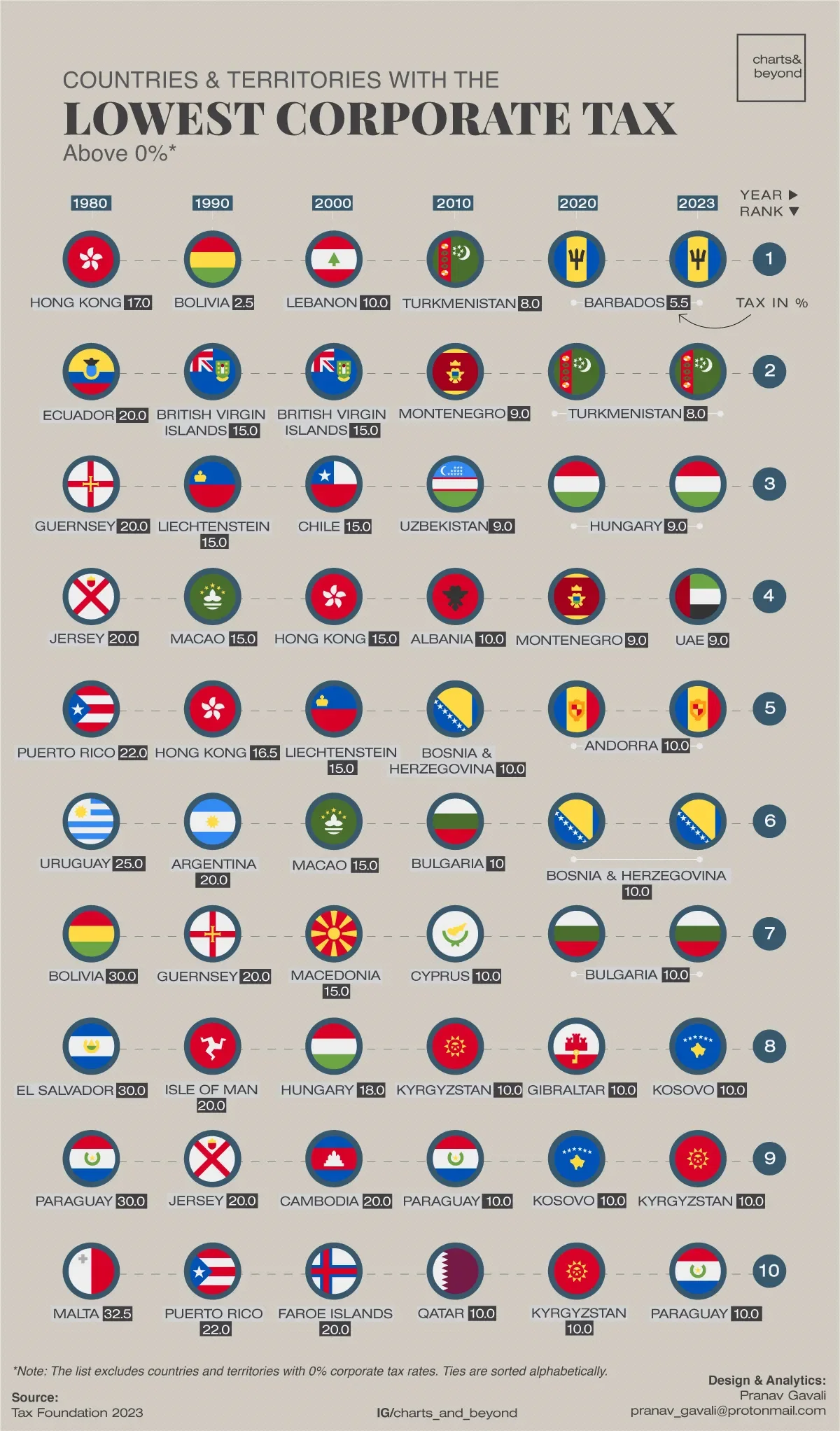Where Data Tells the Story
© Voronoi 2025. All rights reserved.

Note: Does not include Tax Havens / Countries with 0% Tax, Refer to 1. below to find out prominent tax havens or visit TaxFoundation for the complete dataset. Ties are sorted alphabetically.
Developed by Pranav @charts_and_beyond
Read more about the state of taxation here:
1 - Corporate Tax Rate in every Country
2 - Personal Income Tax Rate in every Country
Several nations have maintained enticing tax rates, enticing businesses with a favorable fiscal environment. Over the years, Turkmenistan, Montenegro, and Bosnia and Herzegovina consistently feature among the top countries with the lowest corporate tax rates.
Evolution Over Years:
The data reflects dynamic changes in corporate tax rates. Notable shifts include Hungary's decrease from 18% in 1995 to 9% in 2023 and Barbados maintaining a steady low rate of 5.5% from 2020 to 2023, showcasing the evolution in tax policies.
Global Implications:
Low corporate tax rates can attract foreign investment, stimulate economic growth, and enhance a country's competitiveness. However, concerns regarding tax avoidance and revenue loss for public services underscore the need for a balanced approach in global taxation discussions.
Side effects of having low corporate taxes?
- Revenue Shortfalls: Low corporate taxes can lead to significant revenue shortfalls for governments, limiting their ability to fund public services, infrastructure projects, and social programs.
- Wealth Inequality: Reduced corporate tax rates may contribute to increased wealth inequality as the burden of funding government activities shifts towards individuals, potentially exacerbating economic disparities.
- Tax Competition: Countries engaging in a race to the bottom with low corporate taxes may create a global environment where businesses prioritize jurisdictions with the lowest tax rates, fostering tax avoidance and reducing the overall tax base.
Conclusion:
As countries strategically position themselves as corporate tax havens, a nuanced understanding of the economic and regulatory implications is crucial. Policymakers globally must navigate this terrain carefully to strike a balance between fostering economic growth and ensuring a fair distribution of tax responsibilities. The five-year overview sheds light on the persistent efforts of certain nations to create a tax-friendly ecosystem, raising important questions about the long-term sustainability and equity of such practices.